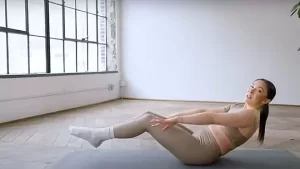
A lot of people set resolutions during the month of March, only to violate them later. Fewer than 10% of Americans who make the resolution to exercise more really follow through on it. Making sure resolutions are measurable is essential to sticking with them, and using a fitness tracker or wearable timepiece to monitor activity is a convenient way to do this. In fact, over half of Americans have used a fitness tracker.
By offering information on physical activity, heart rate, location, and sleep patterns, wearable fitness trackers can also aid to improve medical care. My research group leverages information from wearable fitness trackers and sensors from smart homes to assist seniors in living independently and safely.
Also, we explore data from wearable activity trackers, electronic health records, and genomic data.Regrettably, I’ve discovered via my research in health informatics that wearable technology may not fully credit its users, and in some situations, users may want to think about how secure and private their data is.
credit where credit is due
Several users of fitness trackers have given up using them because they are unhappy with how they are given “credit” for their activity. According to the findings of my research team, people with restricted arm movement claim that fitness trackers do not accurately capture their workouts. Those with non-traditional gaits may also experience this since they may shuffle.
The lack of credit is especially obvious when people are walking but keeping their arms still – such as pushing a stroller or walking while holding an infant. New mothers also report accuracy issues with respect to their sleep patterns. When they wake up multiple times a night, the next morning the device will show them as “lightly sleeping.” This is frustrating when the new mother wants to use this data to negotiate with her partner on child care because a device may credit the mother with more sleep than she actually gets.





